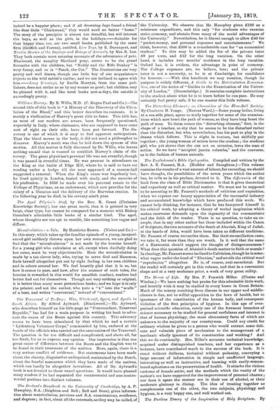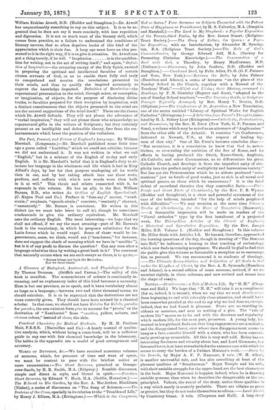The Pauline Theory of the Inspiration of Holy Scripture. By
William Erskine Atwell, D.D. (Hodder and Stoughton.)—Dr. Atwell Ins unquestionably something to say on this subject. It is to be re- gretted that he does not say it more concisely, with less repetition and digression. It is not so much want of the literary skill, which comes from practice, as a failure to understand the conditions of literary success, that so often deprives books of this kind of the appreciation which is their due. A busy age must have an idea pre- sented to it in the right way, if it is to give it attention. Dr. Atwell can
put a thing tersely, if he will. "Inspiration is in the qualifica- tion for writing, not in the act of writing itself ;" and again, "Defini- tion of inspiration—the actuating energy of the Holy Spirit, exerted in preparing the spiritual and intellectual faculties of certain chosen servants of God, so as to enable them fully and truly to comprehend and receive the revelations presented to their minds, and thus to qualify the inspired accurately to express the knowledge imparted. Definition of Revelation—the supernatural presentation to the mind, through sense, or conception, or imagination, of objects, for the purpose of disclosing divine truths, to faculties prepared for their reception by inspiration, with a distinct consciousness that the objects presented to the mind are not the natural suggestions of the mind itself." These are the theses -which Dr. Atwell defends. They will not please the advocates of "verbal inspiration," they will not please those who acknowledge no supernatural gifts in the writers of Scripture ; but they certainly present us an intelligible and defensible theory, free from the em- barrassments which beset the position of the verbalists.



































 Previous page
Previous page